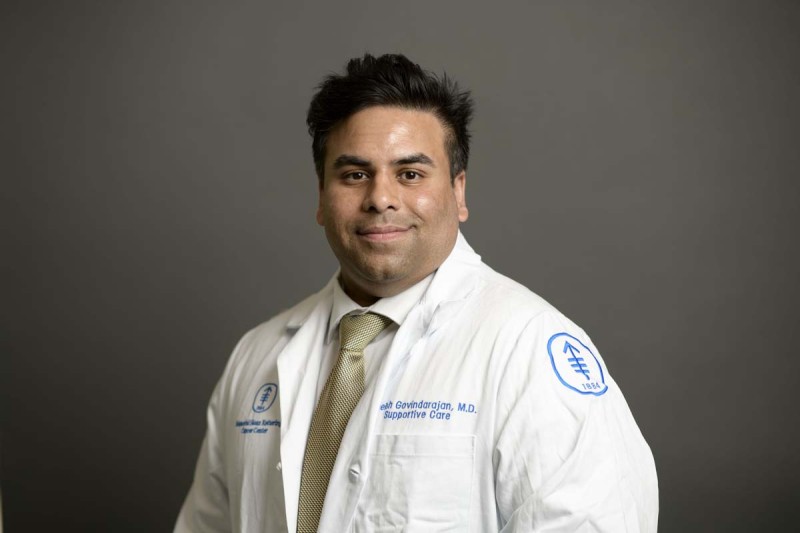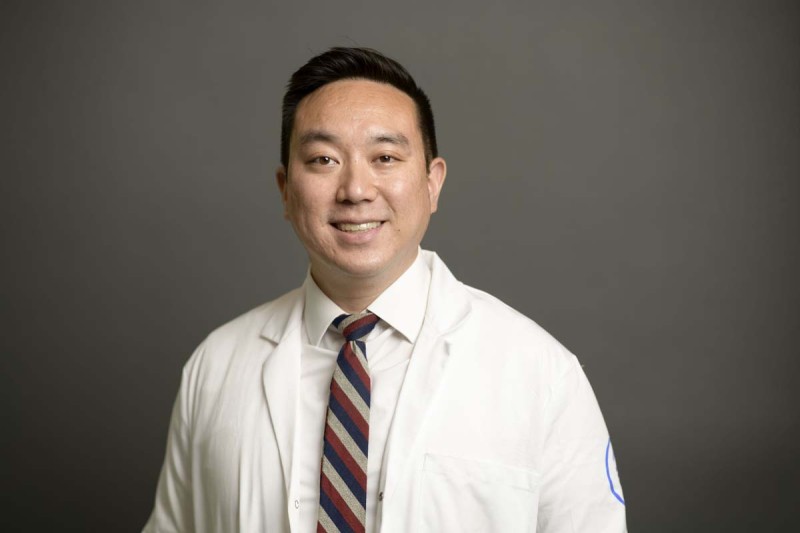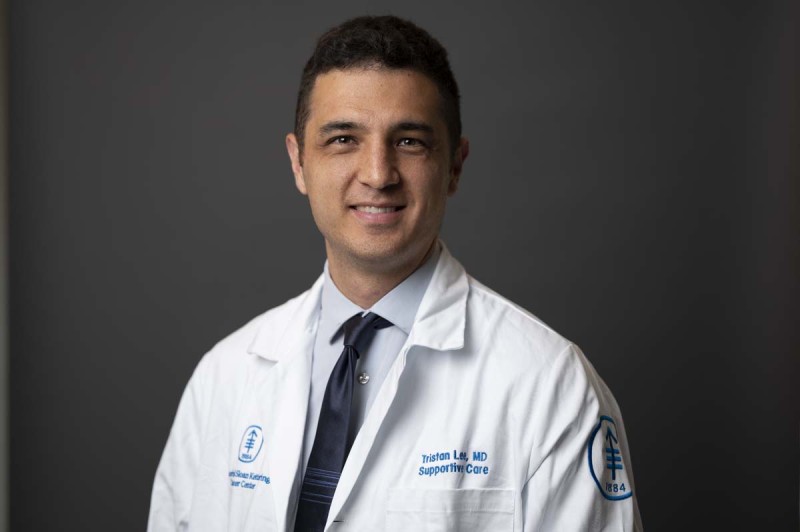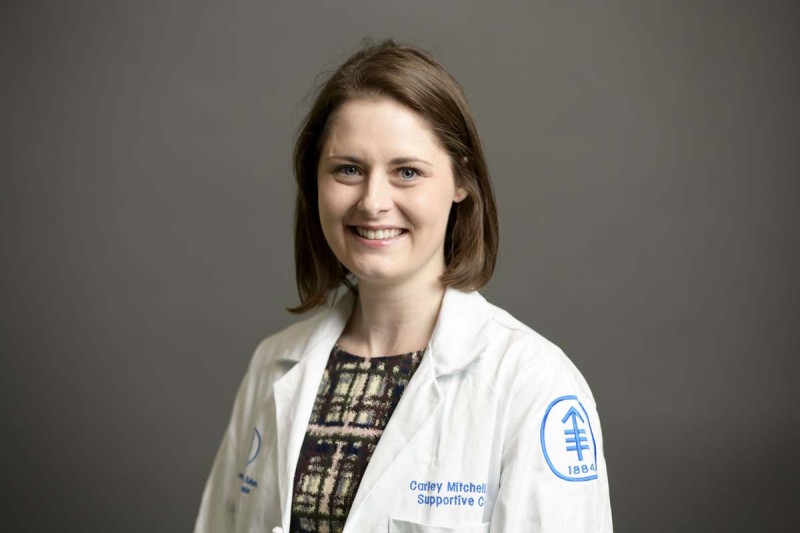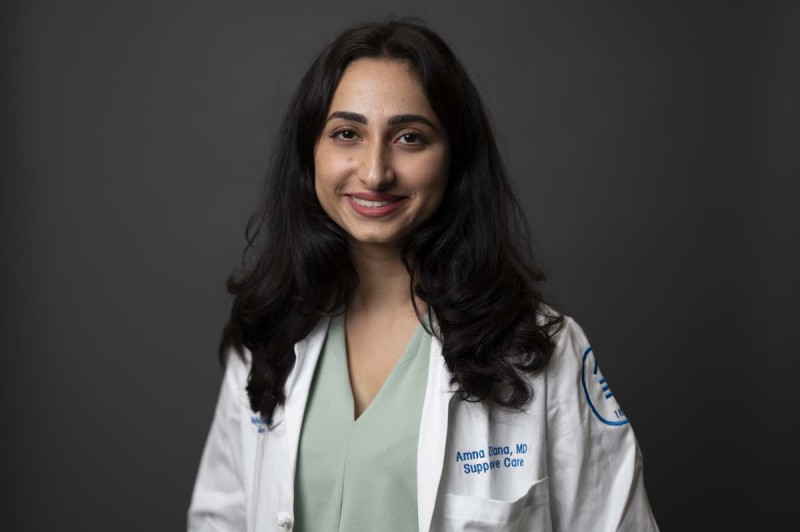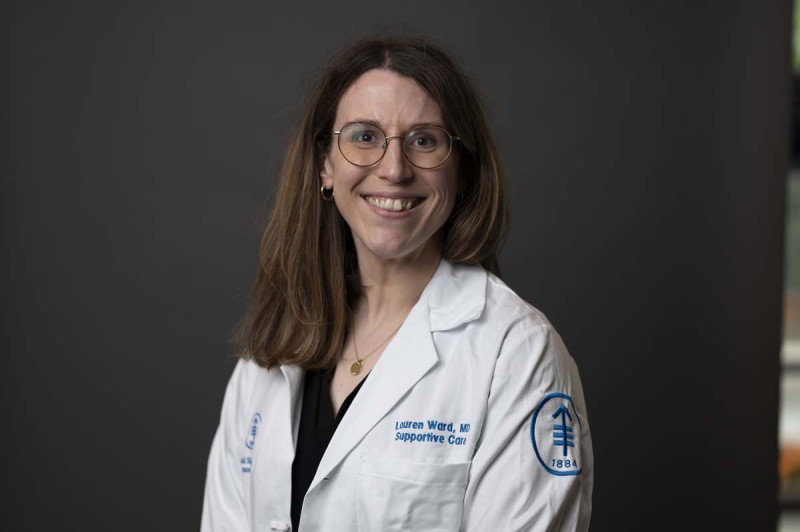The Hospice and Palliative Medicine Fellowship at Memorial Sloan Kettering Cancer Center (MSK) is offered within the Supportive Care Service in the Department of Medicine. This program is accredited by the Accreditation Council for Graduate Medical Education (ACGME) and accepts and mentors six physician fellows each year, training them side-by-side with fellows in our preeminent Advanced Practice Provider Fellowship in Hospice and Palliative Care. Doctors who have completed an ACGME-accredited residency program in internal medicine, family medicine, physical medicine and rehabilitation, psychiatry, neurology, anesthesiology, surgery, pediatrics, emergency medicine, radiology, or obstetrics and gynecology are eligible. This program is ideal for those seeking to develop their expertise and become leaders in the field of hospice and palliative medicine.
Mission
To equip qualified, compassionate, collaborative, committed, and scientifically curious doctors to become specialists and academic leaders in palliative care.
History
MSK, one of the world’s most respected comprehensive cancer centers, has long been a pioneer in palliative care practice and training. As far back as the 1980s, MSK’s Dr. Kathleen Foley, a neurologist, and Nessa Coyle, a nurse practitioner, were instrumental in shaping the field. They played a key role in educating the first pain specialists and palliative care nurses, doctors, social workers, and chaplains. Today, MSK’s Supportive Care Service continues this legacy with over four decades of experience and leadership in complex pain management, psychosocial palliative care, and communication skills training. With a rapidly growing team of over 70 interprofessional members, we’ve fully integrated our training program, clinical service, and research efforts across both hospital and outpatient settings at MSK. This rich history ensures a strong foundation for the exceptional training experience offered by our current Hospice and Palliative Medicine Fellowship.
Our Comprehensive Training Program
Our comprehensive training program equips fellows with the knowledge and skills to become expert palliative care providers and learn to treat a broad range of patients and families in a variety of care settings.
Clinical Rotations
The core experience is provided by the Inpatient Consult Service, where fellows work collaboratively with a team consisting of doctors, advanced practice providers, social workers, chaplains, and a dedicated palliative-care-trained pharmacist. This team approach exposes fellows to unparalleled acuity and complexity of palliative care needs, in terms of both symptom management and communication.
To provide fellows with a broad perspective on palliative care, rotations include experiences in our robust ambulatory practice utilizing telemedicine, pediatric palliative care, and hospice settings through collaborations with the Visiting Nurse Service of New York and Calvary Hospital. Fellows also have the opportunity to spend four weeks at the Palliative Care Service at NewYork-Presbyterian/Weill Cornell Medical Center, gaining experience in providing care to patients with a range of diseases other than cancer.
Curriculum
The fellowship offers an engaging curriculum delivered during weekly Academic Mornings. This protected time allows fellows to focus on professional development without clinical interruptions. Lunch is provided during these sessions. The Academic Morning curriculum typically concludes with the Supportive Care Grand Rounds, offering fellows valuable exposure to complex clinical cases and diverse perspectives.
Interactive and Didactic Sessions
- Symptom Management and Pharmacology: Fellows will delve into evidence-based strategies for managing a wide range of symptoms commonly encountered in palliative care.
- Communication Skills: Fellows will hone their communication skills through participation in our renowned ComSkil program. This program equips them to effectively communicate with patients, families, and colleagues in sensitive and challenging situations.
- Care Coordination and Medical Ethics: Sessions will explore best practices for coordinating care across different settings and navigating complex ethical issues that arise in palliative care.
- Psychosocial Support: Fellows will gain a deeper understanding of the psychosocial aspects of palliative care, learning how to provide comprehensive support for patients and families facing serious illness.
Additional Learning Opportunities
- Interactive Case-Based Learning Series: Fellows will actively participate in case discussions to develop their clinical reasoning and decision-making skills.
- Resiliency and Well-Being: Fellows participate in group supervision with a dedicated social worker and attend workshops focused on building practical tools and strategies to manage stress, cultivate self-compassion, and promote overall well-being throughout their training.
- Narrative Medicine Series: This series explores the power of narrative medicine in understanding the patient experience and fostering empathy in clinical practice.
- Existential Rounds: Weekly forum for fellows to share challenges, celebrate successes, and connect through open discussions and themed poems.
This comprehensive curriculum provides a strong foundation for fellows to become exceptional and compassionate palliative care providers.
Scholarly Opportunities
Required Activities: Fellows complete a diverse portfolio of scholarly activities including the American Academy of Hospice and Palliative Medicine (AAHPM) abstract submission, case presentations, journal club participation, ethics forum discussions, developing a supportive care panel, and culminating in a Supportive Care Grand Rounds presentation.
Additional Opportunities: Fellows can further enrich their scholarly experience by collaborating on a quality improvement project, participating in ongoing research, gaining teaching experience, or applying for the Frances Young Tang Research Fellowship.
Deadline
The application cycle begins one year in advance of the anticipated fellowship start date. Applications are accepted starting in July via the Electronic Residency Application Service (ERAS), and interviews are offered through October.
Length of Program
One year, with the option to apply for a second year as the Frances Young Tang Research Fellow (see below).
Eligibility
Prior to appointment in the program, fellows must have completed a program accredited by the ACGME in family medicine, internal medicine, pediatrics, emergency medicine, psychiatry, radiation oncology, physical medicine and rehabilitation, or neurology.
Number of Positions
Six
How to Apply
The Hospice and Palliative Medicine Fellowship requires the utilization of the July cycle of the ERAS application system to apply and utilizes the National Resident Matching Program to fill all positions. Interviews will begin in late August and continue through October. All applications will be reviewed and ranked by November in preparation for the December match. You are required to submit three letters of recommendation (one must be from your residency or current program director), a personal statement, and test scores (United States Medical Licensing Examination or Educational Commission for Foreign Medical Graduates).
Frances Young Tang Research Fellowship
The Frances Young Tang Research Fellowship offers a unique opportunity for physicians who have completed their hospice and palliative medicine fellowship training to pursue a mentored research experience. This one-year program equips fellows with the skills to become academic researchers in palliative care. Ideal candidates are physicians with a strong passion for research and a desire to pursue a career specifically focused on advancing knowledge in the field of palliative care.
The program provides protected time for fellows to:
- Conduct research under experienced mentors.
- Gain expertise in designing and carrying out palliative care research studies.
- Develop the skills necessary to publish their research findings in peer-reviewed journals.
- Strengthen their research foundation by enrolling in a research methodology course offered by Weill Cornell Medical College.
Application Process for the Frances Young Tang Research Fellowship
The Frances Young Tang Research Fellowship has a separate application process from the Hospice and Palliative Medicine Fellowship Training Program. Applicants are required to submit the following materials by the deadline of January 2:
- A statement of purpose outlining their research interests and career goals.
- A writing sample of their prior research work (e.g., publication, abstract).
- A letter of recommendation from a mentor who can speak to the applicant’s interest and experience in medical research.
- Curriculum Vitae (CV)
We encourage interested applicants to inquire about the research fellowship and application process by contacting [email protected].
The Barbara Ziegler Palliative Care Educational Program is dedicated to the promotion and advancement of pain and palliative care educational and research activities. It provides salary support to one of the six hospice and palliative medicine physician fellows each year. A gift from the Tang Family Foundation supports the Frances Young Tang Research Fellowship in Palliative Medicine, in honor of Dr. Foley.
Ameish Govindarajan, MD
UCLA Kern Medical Internal Medicine Residency
Medical School: Ross University School of Medicine
Future Plans: Dr. Govindarajan has received the Frances Young Tang Research Fellowship in Palliative Medicine at Memorial Sloan Kettering Cancer Center and plans to pursue a Hematology Oncology fellowship.
Michael Lau, MD
Medical School Name: University of Central Florida, College of Medicine
Residency Program Name: Kaiser Permanente Los Angeles Medical Center, Residency, Pediatrics
Other Fellowships: FTHS Fellowship, GME, Pediatrics - Pediatric Hematology/Oncology
Future Plans: Michael Lau will be joining Kaiser Permanente Southern California (Fontana) in September 2024
Tristan Lee, MD
Medical School Name: Duke University School of Medicine
Residency Program Name: New York Presbyterian Hospital, Resident in Internal Medicine
Carley Mitchell, MD
Carley Mitchell completed medical school at Drexel University College of Medicine in 2020 and went on to complete an internal medicine residency at Case Western Reserve University Hospitals. After completing her HPM fellowship, she will be pursuing a hematology/oncology fellowship at University Hospitals - Seidman Cancer Center.
Amna Rana, MD
Medical School Name: Eastern Virginia Medical School – Norfolk, VA
Residency Program Name: Medstar Georgetown University Hospital; Internal Medicine Residency
Amna Rana has accepted an offer from Columbia to join as faculty for full-time palliative care physician. She will be joining in February 2025.
Lauren Ward, MD
Medical School Name: University of Minnesota Medical School
Residency Program Name: UT Southwestern Medical Center; Internal Medicine Residency
Lauren Ward has accepted an offer as a Critical Care Medicine Fellow with University of Pittsburgh Medical Center.
